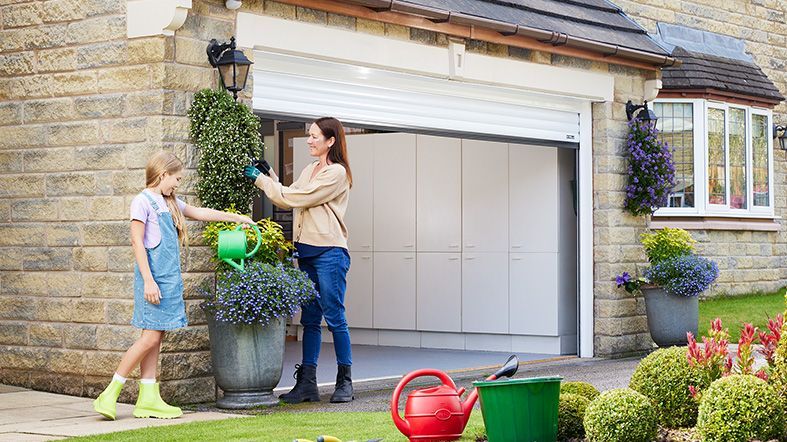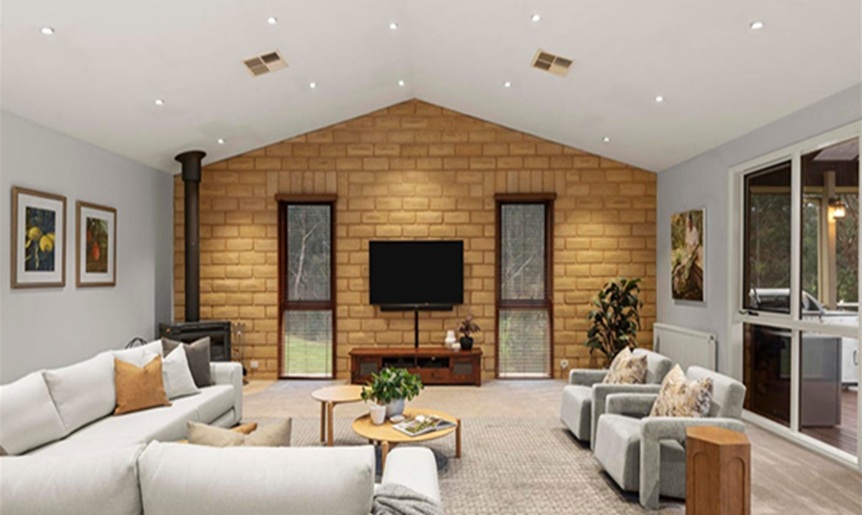Garage doors come in a variety of styles, but not all of them fit the same needs, especially when space is a major factor. Whether you’re looking to maximize your driveway area, optimize internal storage, or just make operation more seamless, choosing the right garage door is essential. Today, we’ll evaluate three popular door styles—roller garage doors, swing-out barn doors, and bi-fold doors—to determine which one saves the most space.
when it comes to space efficiency, roller garage doors lead the pack. Let’s explore why!
Space Efficiency
Before diving into individual options, let’s define why space-saving features matter:
In urban homes, small driveways or narrow garages demand clever solutions to prevent operational inconvenience.
A space-efficient door ensures you maximize both indoor storage and outdoor parking.
Limited clearance, particularly if you have walls, shelves, or other obstacles inside your garage, means the door design must optimize existing space.
Now, let’s look at how roller garage doors, swing-out barn doors, and bi-fold doors compare in handling space.
Roller Garage Doors: Maximum Space-Saving Efficiency
How Roller Garage Doors Work
Roller garage doors operate by rolling vertically into a compact drum (or box) positioned above the garage opening. The slatted door panels coil neatly, ensuring no outward, inward, or sideways movement.
Why Roller Garage Doors Win
- No Clearance Needed
Roller garage doors don’t require any external or internal clearance for the door to function. This is a game-changer if your garage is small or if your driveway directly faces the street. You can park your car right up to the door without worrying about interference.
- Optimized Internal Garage Space
Since the door rolls up into a small drum, it doesn’t eat into overhead storage space either. Unlike bi-fold or swing-out doors that require room for movement, roller garage doors leave walls and ceilings free for shelves, hooks, or gear.
- Suited for Small Properties
Roller doors are particularly ideal for homes in urban areas or confined properties, where every square inch counts. Compact, efficient, and snug, they’re built for tight spaces.
- Flexible Installation
Thanks to their vertical operation, these doors can be fitted onto almost any garage opening, whether rectangular, arched, or uniquely shaped.
Swing-Out Barn Doors: Charming, But Space Hungry
Swing-out barn doors consist of two large panels that swing open outward, much like double doors in a house. While they offer rustic charm and traditional aesthetics, they are far less practical when it comes to saving space.
Why Swing-Out Barn Doors Are Less Space-Efficient
- Large Clearance Required
The panels swing outward, meaning you need substantial clearance in front of the garage. If you have a short driveway or your home is positioned directly on a street, swing-out doors can be highly impractical.
- Obstructed Parking Space
You can’t park too close to the garage while opening or closing the doors because the outward swing requires a clear radius.
- Internal Space Is Not the Problem
While swing-out barn doors do leave the garage interior completely unobstructed, the major challenge lies outside. If your home includes extra outdoor space, they may be an option—but they’re not designed for small or crowded areas.
- Best Fit
Swing-out barn doors are best suited for rural or suburban homes with large driveways and where aesthetics take priority over space constraints.
Bi-Fold Doors: A Middle Ground
Bi-fold doors operate by “folding” inwards (or outwards) in sections, like an accordion. When space conservation matters, they can offer some benefits—but they don’t quite outperform roller garage doors.
Space Considerations for Bi-Fold Doors
- Folding Requires Clearance
Bi-fold doors need additional space—either internally or externally—for their panels to fold. If they fold outward, they’ll claim a portion of your driveway space. If they fold inwards, the folding panels will protrude into your garage, taking up valuable interior space.
- Limits Internal Layout
While bi-fold doors are better than swing-out barn doors for constrained outdoor spaces, they may restrict internal garage layouts—especially if you need walls or corners for storage.
- Not Ideal for Small Homes
Bi-fold doors are a reasonable option for medium-sized garages with few storage needs. However, if you’re working with limited space both inside and out, they’re harder to justify.
Why Roller Garage Doors Are Choose
Roller garage doors come out on top because they address both external and internal space issues simultaneously:
Their vertical rolling mechanism uses neither driveway space nor garage interior.
They are low-profile, compact, and allow you to park right up against the garage without any operational hinderance.
Unlike bi-fold or swing-out doors, they leave the ceiling and walls open for you to build shelves, add storage units, or install overhead lighting.
When space is a priority, roller garage doors are unbeatable. Their sleek design, effortless operation, and minimal footprint make them the go-to option for homeowners seeking practicality and efficiency.




